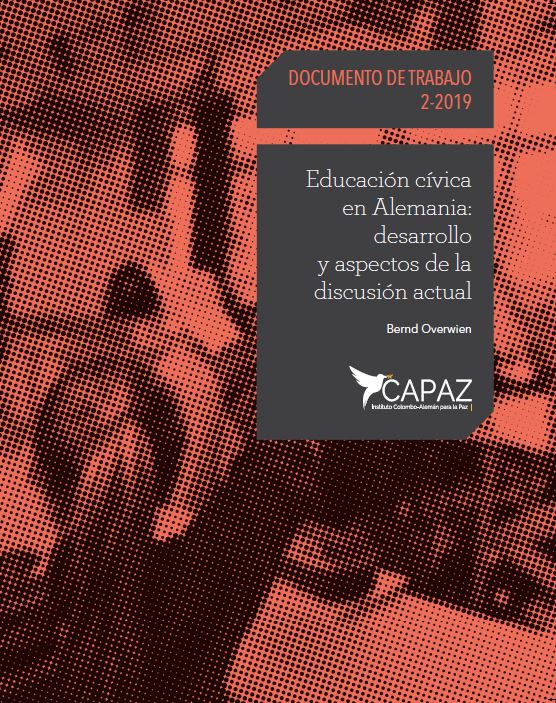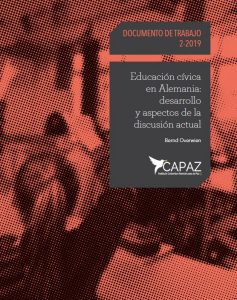
CAPAZ Working Paper: “Civic education in Germany: Development and aspects of the current discussion”
The working document entitled “Civic education in Germany: Development and aspects of the current discussion” is CAPAZ’ most recent publication (Working Document 2-2019). Its author is Prof. Dr. Bernd Overwien, professor of civic education didactics at the University of Kassel, Germany. In the introduction, Prof. Dr. Overwien brings us closer to the definition of the concept in the German-speaking context:
“‘Politische Bildung’ is the term used in German-speaking countries to refer to school and extra-curricular learning activities that prepare or accompany students in the management of politics by acquiring appropriate knowledge and skills. In this respect, political education moves in a relationship of tensions between pedagogy and politics. (Fischer 1972; Mambour 2007, p. 9). Political education is by no means limited to certain age groups: natural and social science classes in primary school prepare students at an early age (6-10 years) to deal with political and social science issues. Civic education as a whole has, in recent decades, resorted to social science knowledge and methods. However, civic education is older and the corresponding lines of progress are drawn and developed in this working paper. The central debates will be outlined on this basis, and finally discussed with a view to current discussions in Colombia”.
Read the CAPAZ working paper (2-2019) (in Spanish)
Overwien, B. Educación cívica en Alemania: desarrollo y aspectos de la discusión actual. Instituto Colombo-Alemán para la Paz – CAPAZ, Bogotá: 2019. 30 p.
(Text: Claudia Maya, English version: Tiziana Laudato)




